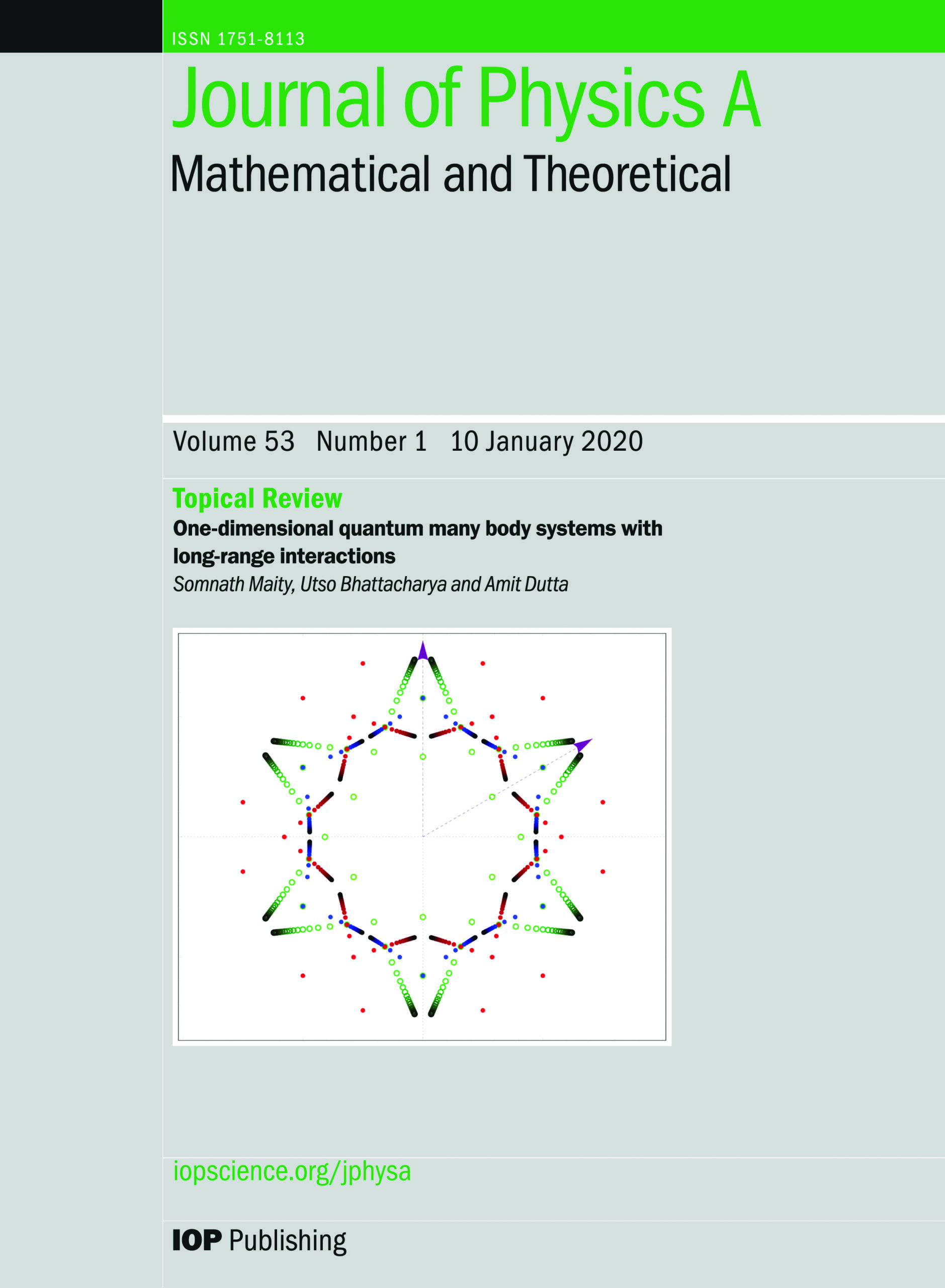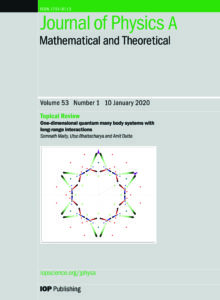JPhysA特刊征稿|流行病预测模型的基本方法

特刊详情
客座编辑
- Joachim Krug,德国科隆大学
- 汤雷翰,香港浸会大学
- Lenka Zdeborová,法国CEA Saclay研究所
主题范围
This special issue is intended to address fundamental questions in disease transmission. Contributions may focus on the COVID-19 pandemic, but should make substantial mathematical or conceptual advances that will be of lasting importance.
Topics of interest include:
The effects of spatial structure, of population heterogeneity, of highly dispersed transmission networks, delay-time effects and the effect of the social distance metric.
We also encourage submissions that aim at integrating intervention strategies and the associated socio-economic dynamics into the modeling framework, or address the general problem of incorporating large-scale empirical data into predictive modelling using deep learning and related inference methods.
投稿流程
特刊文章与JPhysA期刊常规文章遵循相同的审稿流程和内容标准,并采用同样的投稿模式。
有关准备文章及投稿的详细信息,可以参阅IOPscience页面的作者指南。
作者可登入期刊主页进行在线投稿,在“文章类型”中选择“特刊文章”,并在“选择特刊”的下拉框中选择“Fundamental Approaches towards Predictive Epidemic Modelling”。
投稿截止日期:2023年6月30日。
期刊介绍

- 2021年影响因子:2.331 Citescore: 4
- Journal of Physics A: Mathematical and Theoretical(JPhysA)每年出版50期,针对运用数学结构来描述物理世界的基本过程,并探索这些结构的分析、计算和数值方法。期刊内容涵盖:统计物理;非平衡系统、计算方法和现代平衡理论;混沌和复杂系统;数学物理;量子力学和量子信息理论;场论和弦理论;流体和等离子体理论;生物模型等方面。文章类型包括原创性论文和综述,以及关注于热点研究的专题综述和特刊,提供及时、全面的纵览。
